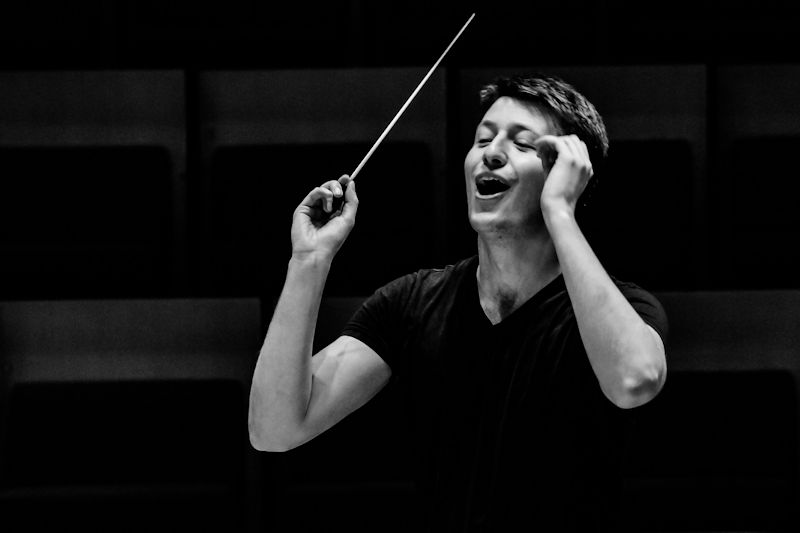Is Edinburgh better than Vienna? This is the question people are asking after the SCO’s traditional New Year’s concert at the Usher Hall today. Many of us have already enjoyed the TV transmission of the Vienna Philharmonic this morning, but this had perhaps a little too much Strauss and schmaltz, and not enough women musicians (11 out of over 100!). The contrast with this afternoon’s SCO programme is striking, this being a diverse programme of Middle European music, with Weber, Dvořák, Ravel, Kodály, Smetana, Sibelius, and yes, some Strauss (and also: almost half the SCO are women). This produces a diverse yet enjoyable programme that leaves the big Usher Hall audience humming happily into the night.
The concert begins with Weber’s Invitation To The Dance, orchestrated by Berlioz for the ballet scene in Weber’s opera Der Freischütz. It opens and closes with a lovely cello solo, played by the SCO’s principal cellist, Philip Higham, and in between there is a lovely waltz. Next is Dvořák’s Slavonic Dance in E Minor, which helped establish Dvořák’s reputation as the leading Czech composer. This is followed by Ravel’s Tzigane, which, although written by a French composer, was written for a Hungarian violinist and is in Hungarian gypsy style. This is played by the orchestra leader, Stephanie Gonley, with great gusto. The first half concludes with Hungarian composer Kodály’s Dances of Galánta.
The second half of the concert begins with three dances from The Bartered Bride, Smetana’s wonderful comic opera. Here, the SCO respond really well to the colourful conducting of Duncan Ward, one of Britain’s finest young conductors. He is very much in charge of the orchestra, swaying into the music, becoming almost a ballet on the podium.
After a short work by Sibelius, the second half of the concert is dominated by the Strauss family, beginning with Johann junior’s Voices of Spring, followed by Eduard Strauss’s polka, Bahn Frei, and Johann Strauss’s Tritsch-Tratsch–Polka. It concludes with, of course, Johann Strauss’s famous waltz, The Blue Danube (not to mention a couple of encores, which get the audience clapping).
So yes, we have a Vienna flavour to finish the concert, but we also had a wide range of Middle European composers beforehand, all expertly played by an expanded SCO with extra brass, under the colourful baton of Ward. Our verdict is: yes, Edinburgh is better than Vienna!
